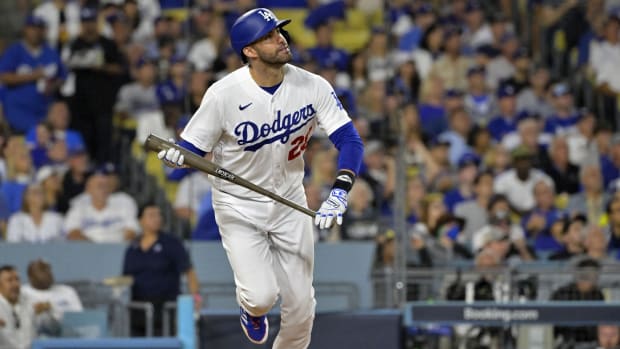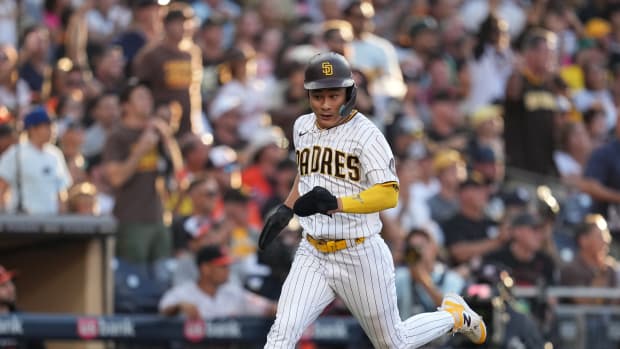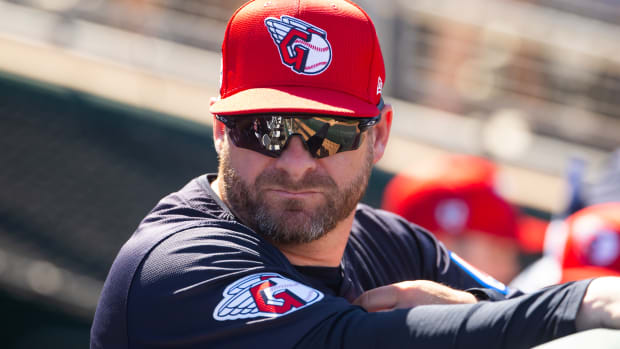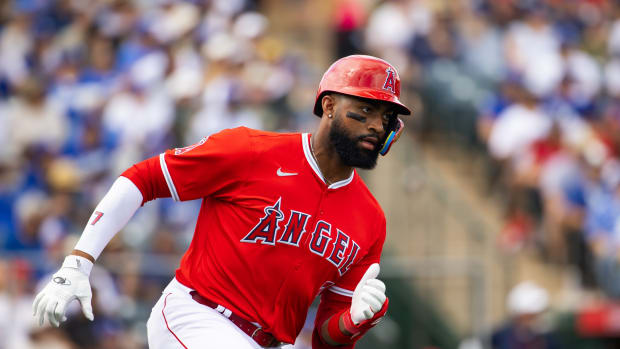The Murky Future for Pirates Pitcher Felipe Vazquez
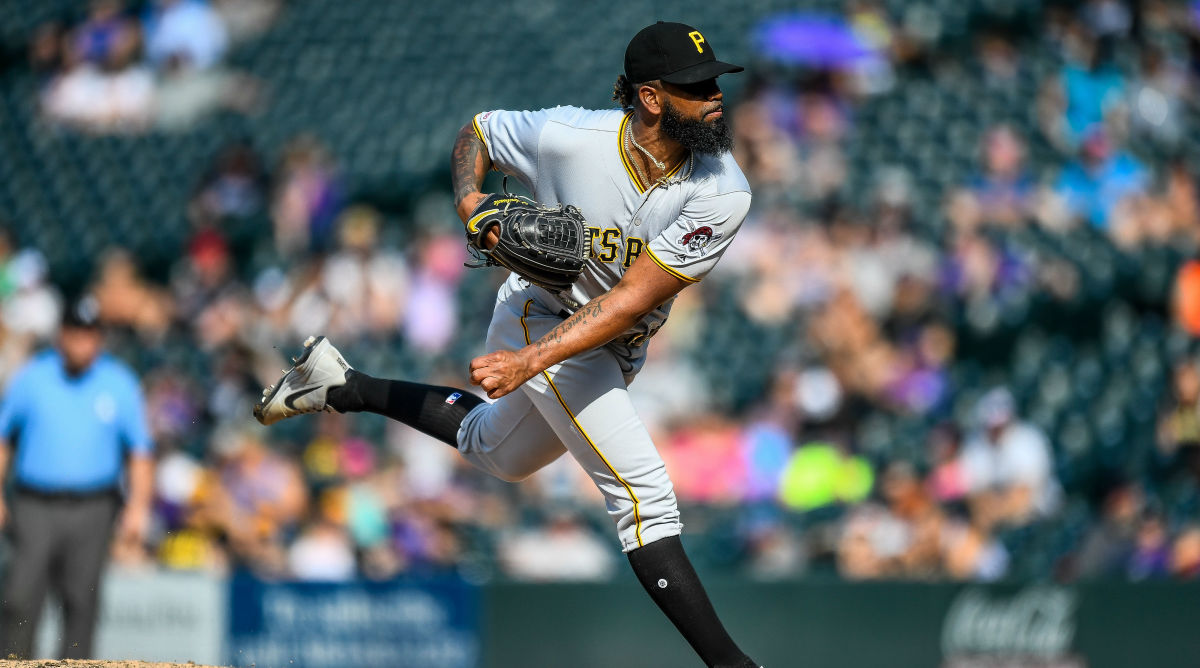
Pittsburgh Pirates closer Felipe Vazquez faces multiple felony charges in Florida and Pennsylvania for allegedly having sex with a 13-year-old girl whom he met at PNC Park
The first set of charges are from Lee County, Florida. Vazquez on Tuesday was charged with using computer pornography to solicit a child for sex and providing obscene material to minors. The charges reflect a multi-state law enforcement operation involving officers from the Florida Department of Law Enforcement and the Pennsylvania State Police. They executed a search warrant at Vazquez’s apartment in Pittsburgh on Tuesday morning. The officers seized several electronic devices from the residence. Shortly thereafter, Vazquez was arrested and booked at the Allegheny County Jail. He will soon be arraigned and faces eventual extradition to Lee County.
According to a statement released by the Florida Department of Law Enforcement, the police investigation into Vazquez started last month. At that time, officers learned that two years ago, Vazquez had engaged in sexual acts with a 13-year-old girl who resides in Lee County. This pattern of sexual conduct continued, with the victim and Vazquez texting one another and using video to record their sexual acts. Apparently, Vazquez texted her with plans to meet for sex after the Pirates season ended.
ESPN’s Jeff Passan reports the victim told police she initially met Vazquez while he was in the bullpen at PNC Park. The two then exchanged texts and other electronic messages.
Vazquez’s legal situation worsened late Tuesday when, according to WTAE.com, he was charged in Westmoreland County, Pennsylvania, with four additional crimes: statutory sexual assault, unlawful contact with a minor, corruption of minors, and misdemeanor indecent assault of a person less than 16 years old.
Prosecutors in Florida and Pennsylvania will likely coordinate the timing of their separate, but connected, prosecutions of Vazquez. As discussed below, MLB has placed Vazquez on administrative leave. He will remain away from the team for the foreseeable future.
The criminal charges in Florida
Like in all states, it is a felony in Florida to use a computer or Internet service to seduce, solicit, lure or entice a child to engage in sexual conduct. A person convicted on such a charge can face up to 15 years in prison.
It is also a felony level offense in Florida to knowingly transmit or show obscene material to a minor. Florida law defines “obscene” as material which uses patently offensive ways to depict or describe sexual conduct or material that the average person would find offensive. A potential five-year prison sentence applies to those convicted of this type of offense.
Maximum possible penalties should not be regarded as likely penalties. It does not appear that Vazquez has a criminal record. As a result, if convicted, Vazquez would face less prison time than the “worst case” scenario for sentences. Still, if tried and convicted, Vazquez would likely be sentenced to a prison term that would last years. The fact that he could be separately convicted and sentenced to prison in Pennsylvania only amplifies that point.
Additional criminal charges in Pennsylvania—and soon possibly other states
Particularly given the coordinated efforts of Pennsylvania and Florida law enforcement and the nature of criminal charges for online activity, it is not surprising that Vazquez faces charges in Pennsylvania.
The most significant of these charges is statutory sexual assault. It refers to having sexual intercourse with a person who is too young to lawfully consent. Under Pennsylvania law, it is a felony in the first degree to engage in sexual intercourse with another person under the age of 16 years and when the age difference is at least 11 years. It appears there is approximately a 14-year gap between Vazquez and the victim: he is currently 29 years old and the victim is currently 15 years old. A conviction on statutory rape in the first degree can carry a sentence of up to 20 years in prison.
As to the other charges, they include unlawful contact with a minor, which refers to contacting a minor with the intent of engaging in lewd, obscene or abusive conduct. A conviction can carry a sentence of up to seven years in prison. The charge for corruption of minors is similar. It refers to engaging in behavior with the intent of harming children, including actions related to sexual abuse. It also carries a potential sentence of up to seven years in prison.
Vazquez is also eligible to be registered as a sex offender should he be convicted of the crimes mentioned above.
Vazquez has pitched for the Pirates since he was acquired in a trade deadline deal with the Washington Nationals in 2016. He has been an elite closer for the Pirates since that time. If Vazquez sent lewd and solicitous messages while the Pirates were playing clubs in other states, he could face additional charges in those states. In addition, he could face federal charges given the interstate nature of the alleged crimes.
In short, Vazquez’s already grim legal situation could become even graver as the days and weeks play out.
How MLB will handle the Vazquez charges
Baseball and the Major League Players’ Association have negotiated a detailed policy to address situations where players who are accused, but not yet proven guilty, of domestic violence, sexual assault or child abuse. The joint policy empowers MLB commissioner Rob Manfred with substantial authority and discretion to investigate and punish players facing such accusations.
Here, Vazquez is accused of partaking in sexual assault and possibly child abuse as those terms are contemplated in the joint policy. If he engaged in sexual acts with a 13-year-old, he would have committed sexual assault. It would have been legally impossible for the victim to have consented. With that in mind, the joint policy defines “sexual assault” as inclusive of a broad range of behaviors. Those behaviors include sexual acts where the other person is legally incapable of offering consent.
Vazquez might also have engaged in child abuse under the policy. The policy defines “child abuse” as “any act or failure to act on the part of a parent or caretaker” which leads to sexual abuse or presents a risk of imminent harm to a child. Vazquez is not the parent of the alleged victim. However, if he was responsible for her safety or represented himself as such, he might also have run afoul of this second part of the policy.
The joint policy also details how the league can separate a player while it investigates him for misconduct. Per the policy, an accused player can be placed on administrative leave (also known as paid leave or, in the NFL, the exempt list) for up to seven days. The commissioner can then decide, on his own, to extend the leave an additional seven days. Beyond those 14 days, the commissioner, with the MLBPA’s consent, can extend the leave for an appropriate time. While on a leave, a player is prohibited from playing games or practicing.
Placement on administrative leave does not represent a finding by MLB that an accused player is guilty of alleged misconduct. The logic behind administrative leave is that it allows MLB to exclude a player who is accused of serious misconduct. Baseball, like other major pro leagues, is an entertainment company. Understandably, MLB does not want its image with fans, sponsors and broadcasters tarnished by featuring players who are accused of grotesque acts. At the same time, a player placed on leave is not “punished” in that he continues to be paid and continues to accrue service time. He may nonetheless lose money if he is unable to reach performance bonuses while on leave. Still, such bonuses are, by their very nature, not guaranteed.
Meanwhile, the league will investigate the charges in a manner that respects the work of law enforcement. In instances where the victim is an adult, MLB can request that the victim meet with MLB investigators. MLB can’t compel this person to meet since MLB, as a private entity, lacks subpoena power and has no contractual relationship with the victim. Here, given that the victim is only 15 years old, it stands to reason the league will proceed cautiously. The league also knows that Vazquez could face additional charges and it does not want to unintentionally interfere.
At a future date at Manfred’s choosing, Manfred could suspend Vazquez for violating the joint policy. The length of suspension would be entirely up to Manfred; there is no minimum or maximum amount. In 2018, Manfred invoked the joint policy to suspend Red Sox pitcher Steven Wright (15) games), Chicago Cubs shortstop Addison Russell (40 games), Blue Jays pitcher Roberto Osuna (75 games) and San Diego Padres pitcher Jose Torres (100 games). This season, Manfred suspended Philadelphia Phillies outfielder Odúbel Herrera 85 games after he was criminally charged over a domestic violence incident (the charges were dropped after the alleged victim declined to proceed with the case).
Manfred is not required to adhere to the legal process in determining guilt. Even if attorneys for Vazquez successfully defend him and the charges are dropped or Vazquez is found not guilty, Manfred could still suspend Vazquez. The commissioner’s determination is independent from that of the legal system and does not need to reach the same outcome.
To that point, while the criminal justice system requires that prosecutors prove a defendant’s guilt beyond a reasonable doubt, no such high standard applies to a league in its determination of whether a player violated a rule contained in the collective bargaining agreement. Russell, for instance, was not charged (let alone convicted) of a crime and yet Manfred still suspended him.
If Vazquez is suspended, he would have the collectively bargained right to appeal the suspension to a three-person arbitration panel. The panel would consist of an arbitrator selected by MLB, another by the MLBPA and a third who would be selected by both the MLB and MLPBA. An appeal would center on both the merits of Manfred’s decision to suspend and the length of the suspension.
The Pirates could try to void Vazquez’s contract
In January 2018, the Pirates signed Vazquez to a four-year contract worth $22 million. He is scheduled to be paid $5.25 million in 2020 and $7.25 million in 2021. Vazquez’s contract is not publicly available but to have been approved by the commissioner’s office, it must comply with MLB’s Uniform Player Contract (“UPC”). Generally, players’ contracts are guaranteed by various provisions in the UPC.
However, the UPC contains language that, at least as worded, suggests a team could void a contract of a player who breaks the law. Specifically, Paragraph 7(a) empowers a club to terminate a player’s contract if he “fails, refuses or neglects to conform his personal conduct to the standards of good citizenship and good sportsmanship.” A player who (allegedly) engaged in sexual acts with a 13-year-old has certainly betrayed a contractual duty of “good citizenship.”
Yet teams have often struggled to void contracts of players who commit misdeeds. Players and the MLPBA have used arbitration to effectively contest contractual terminations. Teams are more effective when they seek to negotiate buyouts of player contracts whereby the player is paid only a portion of his remaining salary. In 2011, the Mets used this approach when it lowered contractual guarantees owed to pitcher Francisco Rodriguez after he was charged with assault.
The Pirates might also have additional leverage should Vazquez’s contract contain salary riders. Riders are used in many multi-year MLB contracts. They allow a team to convert guaranteed salary into non-guaranteed salary. These riders can be triggered if a player engages in certain types of misconduct. If the Pirates wisely included relevant riders in their contract with Vazquez, they would be more inclined to try to void the contract.
Still, don’t expect the Pirates to attempt to void Vazquez’s contract in the immediate future. But as the months pass, and as the 2020 season nears, the Pirates may be well positioned to try to void Vazquez’s contract. The MLPBA would likely then file a grievance. To that point, even if the MLBPA would rather not defend Vazquez in light of his alleged crimes, it will still do so for at least a couple of reasons. One, the union has an obligation under the National Labor Relations Act to defend its members. Two, MLBPA wants to avoid a precedent whereby guaranteed contracts become non-guaranteed.
Vazquez’s attorneys will raise defenses
At this stage, all that is known about the allegations against Vazquez are from law enforcement sources. A defense attorney would insist that these sources are not neutral since they will be aiding in the prosecutions of Vazquez.
Over the coming days and weeks, Vazquez’s attorneys will probably cultivate arguments that raise fundamental questions about the charges. Those arguments could range from denying that any sexual acts occurred, refuting that Vazquez sent the texts containing pornography and casting doubt on whether law enforcement complied with Fourth Amendment protections from unlawful searches and seizures in the manner in which they obtained electronic evidence and testimony. It’s also possible those attorneys will attempt to negotiate a plea deal with prosecutors—a prospect made more complicated by the presence of charges in two states.
Vazquez could face immigration consequences
There is one additional legal topic worth watching. Vazquez is from Venezuela. If he is not a U.S. Citizen or living in the U.S. as a permanent resident (green card), he is able to reside and travel in the U.S. on a work visa. The U.S. Department of Homeland Security can seek to remove (deport) a non-citizen who is found to have committed a violent crime. This federal agency can also prevent such a person from re-entering the U.S. should he or she leave the country.
To be sure, Vazquez won’t be leaving the country if he’s convicted of felonies—he’ll be going to prison. But if Vazquez serves a relatively short sentence and if he is released while young enough to continue to pitch, a league career might no longer be possible. He would face potential deportation or be deemed inadmissible should he leave the U.S. and then try to return.
Michael McCann is SI’s Legal Analyst. He is also an attorney and Director of the Sports and Entertainment Law Institute at the University of New Hampshire Franklin Pierce School of Law.































